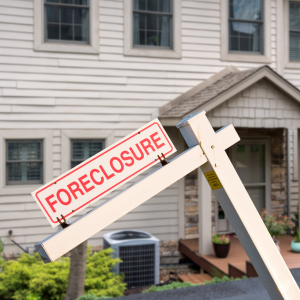
If you want to sell a house in West Virginia that is in foreclosure more quickly and easily, Henderson Homebuyers can help. They offer ways to deal rapidly and effectively even when the market demands.
Understanding West Virginia Foreclosure: A Homeowner’s Guide
What are the early warning signs of foreclosure in West Virginia?
In West Virginia, homeowners should watch for early warning signs of foreclosure. Being alert can help prevent losing your home.
- Notice of Default: This is the first formal step in foreclosure. Respond quickly to any warning to investigate your alternatives.
- Missed Mortgage Payments: Regularly missing payments can lead to default. Address financial issues early by consulting a financial advisor.
- Communication from Creditors: Increased communication from creditors might signal impending foreclosure actions.
Understanding West Virginia’s foreclosure law and taking proactive steps can help resolve financial challenges.
What are my options if I can’t afford my mortgage payments?

If you are struggling with mortgage payments, consider these options:
- Application for Loss Mitigation: Consult with your lender regarding loss mitigation strategies. Payments may be rendered more manageable through loan modification or refinancing.
- Cure the Default: Pay the overdue amount to bring your mortgage current. You might need to negotiate with creditors or seek financial assistance from family or friends.
- Financial Assistance Programs: Explore state or local programs offering mortgage relief for those facing unforeseen difficulties.
Act quickly and consult a housing counselor to navigate these options effectively.
What legal rights do I have as a homeowner facing foreclosure?
Homeowners in West Virginia have specific legal rights when facing foreclosure:
- Redemption Period: After foreclosure, you may have a redemption period to reclaim your property by paying the foreclosure sale price plus interest, as outlined in the West Virginia Code.
- Duty to Vacate: Know the timeline and legal obligation to vacate the property post-foreclosure to comply with state laws.
- Protection Under Consumer Credit Laws: These protections might offer relief against unfair practices by creditors during foreclosure.
Consult a legal professional for personalized advice based on your circumstances and to understand your rights and obligations.
For further assistance, contact Henderson Homebuyers for guidance suited to your situation.
Selling Your West Virginia Foreclosed Home: Strategies for a Successful Sale
How can I determine the fair market value of my foreclosed property?
Setting a fair market value for your foreclosed property in West Virginia is vital. Here’s how you can do it:
- Understand Foreclosure Impact: Recognize that foreclosures often influence the perceived value due to the nature of distressed sales.
- Get a Professional Appraisal: Hire a certified appraiser familiar with the West Virginia real estate market for an unbiased home valuation.
- Research Market Comparisons: Look at similar properties recently sold under comparable conditions in your area.
Following these steps helps ensure your property is priced competitively and attracts potential buyers.
What repairs or improvements will maximize my property’s sale price?
Making smart repairs and changes to your home will help it sell for more money. Take care of these things:
- Essential Repairs: Fix critical structural or functional issues like roofing or plumbing to make the property more appealing and valuable.
- Cosmetic Improvements: Simple updates like fresh paint, new fixtures, and improved landscaping can significantly enhance curb appeal and attract buyers.
- Energy Efficiency: Install energy-efficient appliances and improve insulation to make your home more attractive in today’s market.
These upgrades can increase your property’s value and appeal in West Virginia’s competitive real estate market.
What are the best ways to market my foreclosed home to attract buyers?
Effective marketing of your foreclosed home is key to attracting serious buyers. Use these strategies:
- Targeted Advertising: List your property on popular online platforms widely used in West Virginia.
- Professional Photography: High-quality images are essential; hire a photographer to capture your home’s best features.
- Local Expertise: Work with a house buyer experienced with foreclosed properties to leverage their network and local knowledge.
- Open Houses and Virtual Tours: Offer physical and virtual tours to reach a broader audience.
These marketing tactics will increase your property’s visibility and attract potential buyers, leading to a successful sale.
Navigating the Legal Landscape of West Virginia Foreclosure Sales
What are the legal requirements for selling a foreclosed property in West Virginia?
The West Virginia Code spells out the steps that must be taken to sell a foreclosed home in West Virginia legally. Sellers need to:
- Select a Trustee: To oversee the foreclosure auction, a trustee is required, and they must be impartial.
- Provide Proper Notice: Proper notice is mandatory. The sale details must be published in a local newspaper, and all parties involved must be notified.
- Follow State Regulations: It is critical to adhere to state regulations, which include notification deadlines and sale procedures outlined in state law.
Refer to the West Virginia Code or consult a legal professional for detailed information.
What are the deadlines and requirements for foreclosure notices in WV?

In West Virginia, foreclosure notices must meet the timelines and conditions established in the West Virginia Code:
- Notice Period: The foreclosure notice must be published in a local newspaper once a week for four consecutive weeks before the sale.
- Content Specifics: Notices need to include the date, time, and location of the sale, along with a property description.
- Trustee’s Role: The trustee ensures that these notices meet the legal standards and orders set by law.
Regularly check the West Virginia Code updates to stay informed about any changes. Consulting legal experts is advised for precise guidance.
What is the right of redemption in West Virginia, and how does it apply to me?
The right of redemption in West Virginia allows property owners to reclaim their property after a foreclosure sale. Key points include:
- Redemption Period: After a foreclosure, owners may have a statutory period to redeem their property by paying the owed amount.
- Curing the Default: Owners must pay all outstanding debts, including the principal, interest, and additional foreclosure costs.
- Legal Rights of Creditors and Owners: The rights of owners and creditors are protected during the redemption process.
Understanding these rights is crucial for property owners and creditors. Consult a legal professional for advice specific to your case.
For more insights, explore the common questions for Henderson Homebuyers and access valuable resources and guidance.
Financial and Tax Implications of Selling a Foreclosed Home in West Virginia
What taxes and fees apply to selling a foreclosed property in West Virginia?
Selling foreclosed property in West Virginia requires many taxes and fees. The state’s property transfer tax depends on the sale price. Recording the sale with local authorities costs money. Specific portions of the West Virginia Code outline these charges.
Key points:
- Property Transfer Tax: This is calculated as a percentage of the sale price.
- Recording Fees: Necessary for the sale’s official documentation.
- Local Fees: Counties might impose additional fees.
Understanding these obligations helps you prepare for the expenses during the foreclosure process.
How do I calculate my capital gains or losses from the sale?
To calculate capital gains or losses from selling a foreclosed property, you must find the difference between the sale proceeds and the property’s adjusted basis. Include any liens or reinstatement amounts paid during the foreclosure in this calculation.
Steps to follow:
- Determine Sale Proceeds: Total money received from the sale.
- Calculate Adjusted Basis: Original cost plus improvements minus any depreciation.
- Subtract Basis from Proceeds: This gives you the capital gain or loss.
- Account for Liens: Any payments to clear liens will affect the gain or loss.
Accurate calculations ensure you understand your tax responsibilities.
What tax deductions might be available to me after a foreclosure sale?
After a foreclosure sale, certain tax deductions may reduce your liability. Consult the West Virginia Taxation Code to identify viable sections and provisions for relief. Standard deductions include reinstatement costs and other foreclosure-related expenses.
Potential deductions:
- Reinstatement Costs: Expenses to stop foreclosure proceedings.
- Legal and Selling Fees: Covers real estate commissions and legal costs.
- Improvements: Significant enhancements were made before the sale.
It’s advisable to seek advice from a tax professional to maximize deductions while staying compliant.
Working with House Buyers: Your Partner in Navigating West Virginia Foreclosure
What services do House Buyers offer to homeowners facing foreclosure?
House buyers offer various services to help homeowners in West Virginia facing foreclosure. They recognize the strain involved and assist by:
- Loss Mitigation Assistance: They help homeowners look into strategies to prevent foreclosure by guiding them through the loss mitigation application.
- Conduct Analysis: They analyze each homeowner’s situation to find the best solutions.
- Tailored Options and Solutions: They offer alternatives aligned with the homeowner’s objectives, whether retaining the property or transitioning seamlessly.
These services help homeowners get practical support to resolve foreclosure issues efficiently.
How does the Home Buyers process work in West Virginia?

A Home buyer’s process is straightforward and supportive, helping homeowners handle foreclosure challenges. Here’s how it works:
- Initial Assessment: First, homeowners look at their finances and property facts.
- Strategy Development: The assessment informs a plan with possible answers.
- Timeline and Guidance: The team provides a detailed timeline and continuous guidance throughout the process.
- Execution of Plan: The agreed-upon strategy is implemented, with ongoing support available for concerns.
This structured approach reduces foreclosure stress by providing clarity and direction.
What are the benefits of working with Home Buyers compared to selling traditionally or through a short sale?
Working with Home Buyers offers several benefits over traditional selling methods or a short sale:
- Efficiency: Transactions are typically faster, saving time and resources.
- Value Preservation: They aim to maximize the home’s value, providing financial stability during tough times.
- Reduced Hassle: There is no need for extensive home showings and negotiations, making the process easier.
- Alternative Solutions: They offer options beyond selling, like refinancing or leasing back the property.
A company that buys homes in Parkersburg and other cities in Virginia provides a seamless and supportive experience, helping homeowners navigate foreclosure confidently while ensuring a quick and stress-free home sale.
FAQs:
What is the process for selling a home in foreclosure in West Virginia?
Selling a home in foreclosure in West Virginia requires understanding the state’s foreclosure laws and timelines. Consulting with a real estate expert or attorney can help guide you through legal requirements and negotiations with lenders.
Can I still sell my house if it’s already in foreclosure in West Virginia?
Yes, you can sell your house fast for cash in Bluefield and other cities in Virginia, even if it’s already in foreclosure. A professional can assist in finding potential buyers quickly to prevent the foreclosure sale.
What are some tips for selling a foreclosed property in West Virginia?
Work with experienced real estate professionals specializing in foreclosure sales to sell a foreclosed property. Ensure the property looks presentable, make necessary repairs, and set a competitive price based on market conditions.
How does the West Virginia housing market impact foreclosure sales?
The West Virginia property market influences sales of foreclosures. In a seller’s market, homes could sell quickly and for more money. Conversely, you might have to be more intelligent about promoting and pricing your home in a buyer’s market.
What should I consider when selling real estate in foreclosure in WV?
Consider the foreclosure timeline, market conditions, and any redemption periods. This intricate process can be simplified by collaborating with experienced professionals.
Are there any tax implications when selling a foreclosure property in West Virginia?
There may be tax implications, such as capital gains taxes when selling a foreclosure property. Consulting a tax advisor can help you understand your liabilities and benefits.
How can I find foreclosure listings to purchase in West Virginia?
Foreclosure listings can be found on real estate websites, local newspapers, and county auctions. A real estate professional familiar with the West Virginia market can give you access to exclusive listings and help with the buying process.
Why is it essential to seek professional advice when dealing with foreclosures in West Virginia?
In foreclosure, professional advice mitigates tension, enhances financial outcomes, and ensures compliance with local laws. To effectively manage these situations, it is imperative to have the assistance of legal and real estate professionals. If you are facing foreclosure, seeking immediate consultation to safeguard your credit and investigate potential solutions is crucial.
Key Insights
- Using the West Virginia Code, we provide guidance on selling a house in foreclosure in West Virginia.
- The intersection of consumer credit protection and real property laws is within our area of expertise.
- We help complete a loss mitigation application to stop foreclosure and effectively cure the default.
- Our team guides you through foreclosure law procedures, including understanding redemption periods after foreclosure sales.
- Certified pros who follow the Virginia Code for debt settlement make the legal process more manageable.
- We collaborate with credit unions and charitable organizations to support clients needing financial aid.
- Knowledge of tenant rights, land use, and eminent domain ensures compliance with legal provisions.
- We aim to mitigate expenses and safeguard credit scores by overseeing taxation concerns associated with foreclosures.
- Understanding the jurisdiction of magistrate courts is essential for handling foreclosure proceedings.
- Our strategies involve working with nonprofit organizations to recover properties smoothly.
- We provide insights on foreclosure sales, informing clients about their rights and duties.
- Legal matters, including personal injury claims and family law issues in foreclosure cases, are attended to professionally.
- Our services allow clients to access dependable legal research and drafts for affidavits and notices.
- We provide practical guidance on the timing of eviction proceedings and the appropriate time to vacate properties if necessary.
- Clients are informed about the West Virginia Code regarding substitute trustee roles.
- Help with arbitration and magistrate courts resolve disputes during foreclosure processes.
- We provide educational content on foreclosure notices and the legal timeline involved in these actions.
- Our resources include details on checks and balances related to foreclosure costs and liabilities.
Have questions, or ready to sell? Call us at (304) 672-2666 for a no-obligation offer, and take the first step today!
